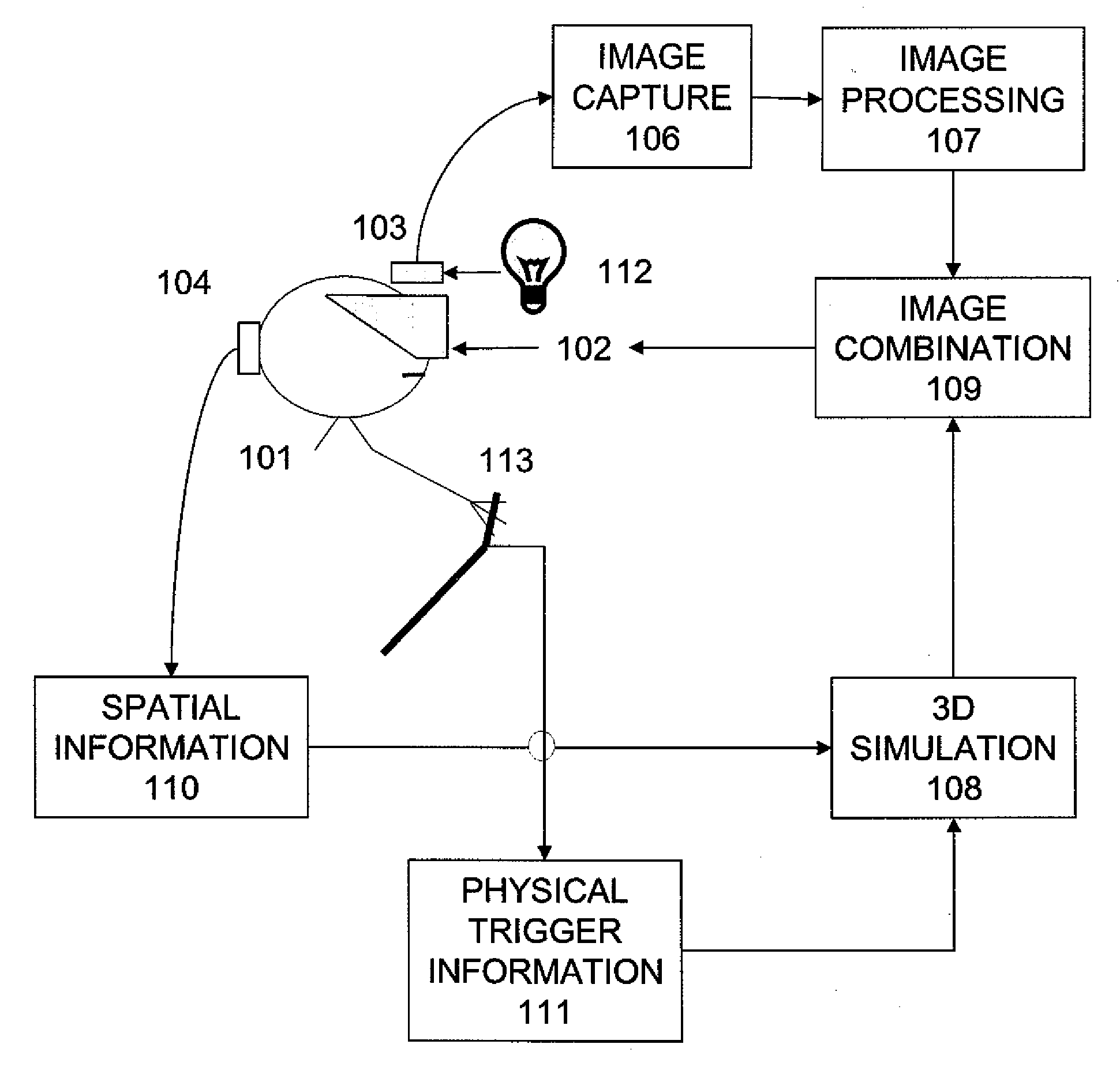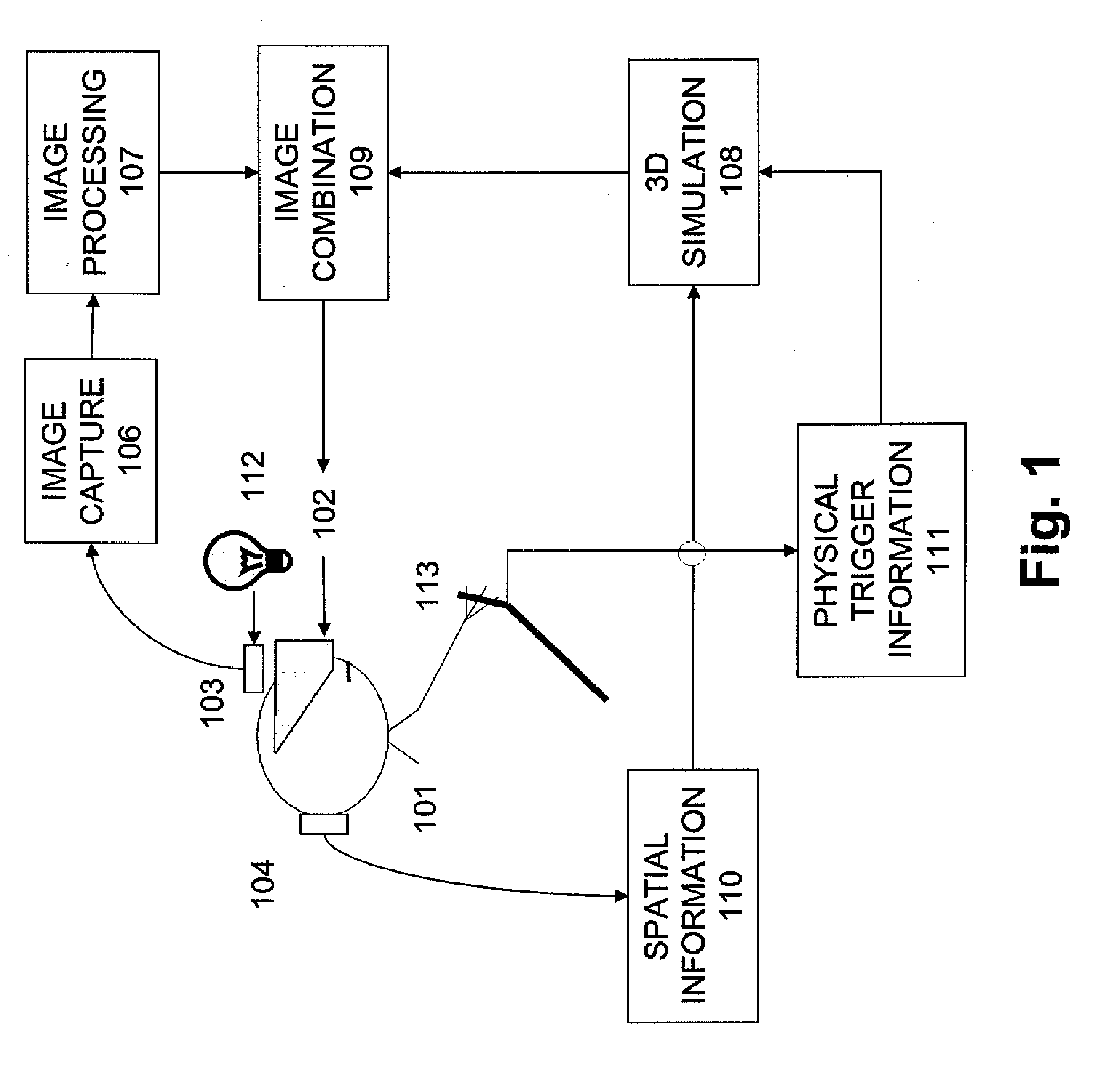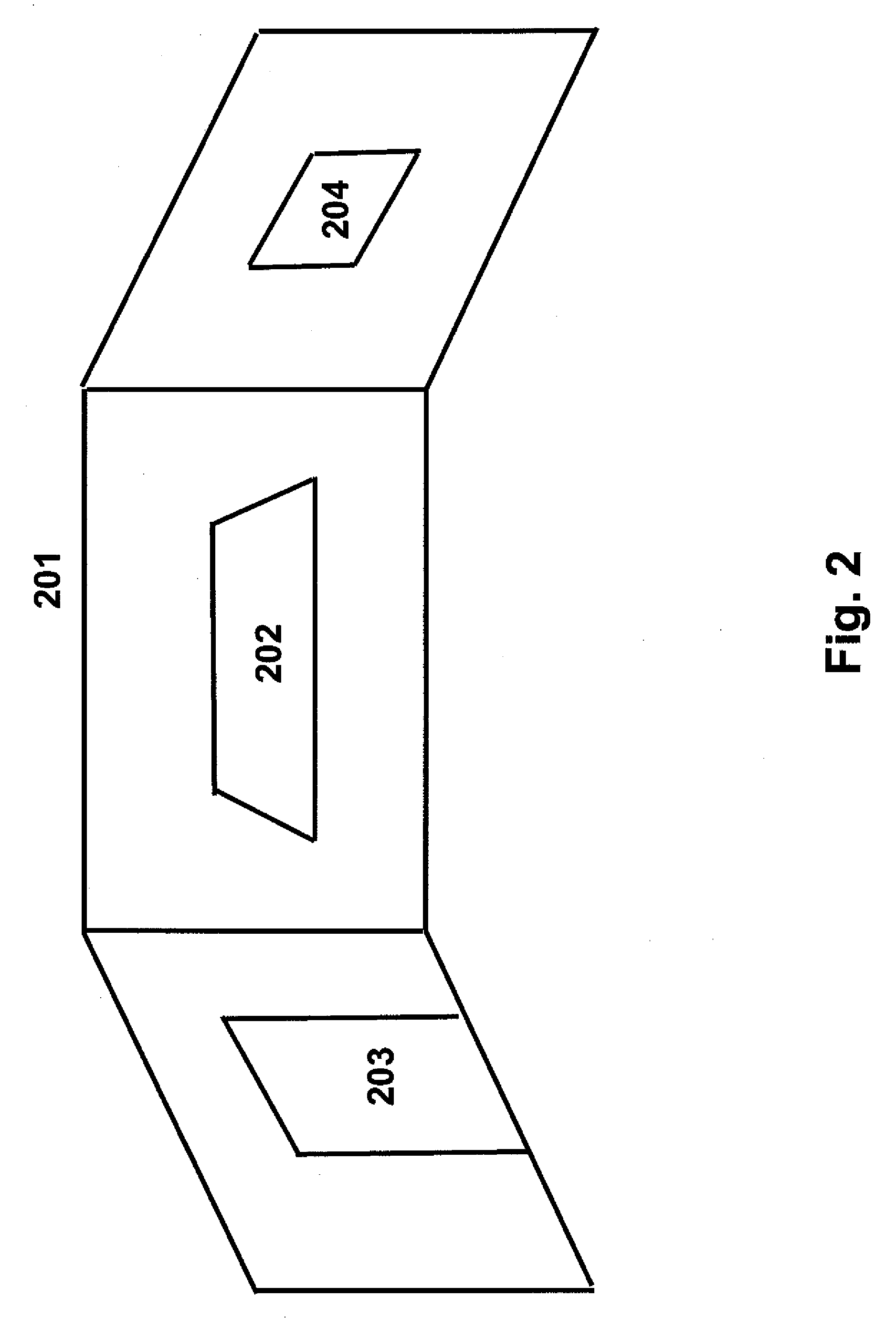Systems and methods for combining virtual and real-time physical environments
a virtual and physical environment technology, applied in the field of virtual reality, can solve the problems of limited or unavailable ability to interact with the virtual world with physical objects, difficulty in combining real world and virtual world images in a realistic and unrestricted manner, and certain views and angles are not available to users
- Summary
- Abstract
- Description
- Claims
- Application Information
AI Technical Summary
Benefits of technology
Problems solved by technology
Method used
Image
Examples
Embodiment Construction
[0043]Described herein are several embodiments of systems that include methods and apparatus for combining virtual reality and real-time environments. In the following description, numerous specific details are set forth to provide a more thorough description of these embodiments. It is apparent, however, to one skilled in the art that the systems need not include, and may be used without these specific details. In other instances, well known features have not been described in detail so as not to obscure the inventive features of the system.
[0044]One prior art technique for combining two environments is a movie special effect known as “blue screen” or “green screen” technology. In this technique, an actor is filmed in front of a blue screen and can move or react to some imagined scenario. Subsequently, the film may be filtered so that everything blue is removed, leaving only the actor moving about. The actor's image can then be combined with some desired background or environment s...
PUM
 Login to View More
Login to View More Abstract
Description
Claims
Application Information
 Login to View More
Login to View More - R&D
- Intellectual Property
- Life Sciences
- Materials
- Tech Scout
- Unparalleled Data Quality
- Higher Quality Content
- 60% Fewer Hallucinations
Browse by: Latest US Patents, China's latest patents, Technical Efficacy Thesaurus, Application Domain, Technology Topic, Popular Technical Reports.
© 2025 PatSnap. All rights reserved.Legal|Privacy policy|Modern Slavery Act Transparency Statement|Sitemap|About US| Contact US: help@patsnap.com



